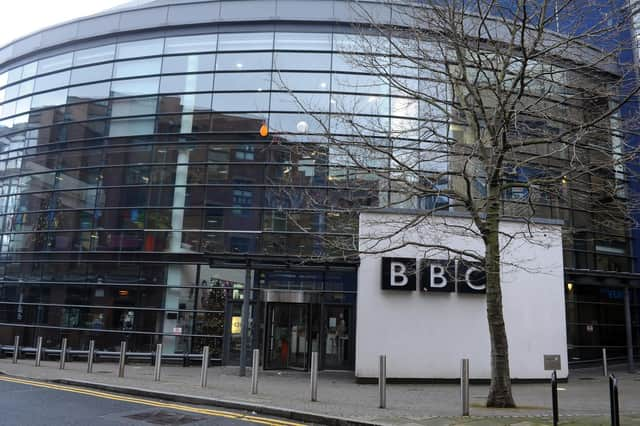BBC's bite-size religious broadcasting can do more harm than good - GP Taylor


The BBC has a public service broadcasting requirement to produce 115 hours of religious content on TV and 370 hours on radio each year. That is a vast amount of programming to a subject that is becoming a minority interest.
In 2018, 52 per cent of the public said they did not belong to any religion, compared with 31 per cent in 1983, when the British Social Attitudes survey began tracking religious belief. The number of people identifying as Christian has also fallen from 66 per cent to 38 over the same period.
Advertisement
Hide AdAdvertisement
Hide AdNon-religious people are increasingly identifying as atheist rather than agnostic. One in four members of the public stated: “I do not believe in God,” compared with one in 10 in 1998. Yet, the BBC pushes out the same old stuff every day, interrupting programmes on Radio 2 and Radio 4 with representatives of different religions giving us their smug-faced zeitgeist on God and the world.
As an avid listener to BBC Radio, I tend to turn off or switch channels rather than have my brain affronted by this repetitive, irrelevant dogma interrupting the flow of Zoe Ball or Amol Rajan.
It makes me wonder if now is the time for the BBC to stop religious broadcasting for good.
The BBC God-slots are heavily Christian with the occasional person from another faith. Do we really need to be told on a daily basis that Jesus was a really nice chap and if we are all kind to each other then, the world will be a better place? From my experience, we are being exposed to the nadir of theological thought.
Advertisement
Hide AdAdvertisement
Hide AdSurely, this religious opiate doesn’t have to be supplied by the BBC? Isn’t it right and fair that our national broadcaster becomes truly secular and impartial? There is now the real need for a clear definition between religion and the State. If this means a radical change to the BBC charter then so be it.
Religion is becoming a divisive tool within our society. Some faiths appear to be becoming more and more intolerant of each other, exacerbating the divisions within our communities. From my experiences as a vicar, I have found some Christians are very intolerant.
When I wrote in this paper that I was considering becoming a Catholic, I had a bag of hate mail and several speaking engagements cancelled as, according to one correspondent, I was “possessed by the devil of Popery”.
I am also deeply saddened with faith attitudes towards members of the LGBTQ+ community. If faiths are welcoming of everyone, then why are same sex marriages not allowed in religious buildings? To reject people from having the blessing of God just because they fall in love with someone of the same sex has to be wrong. Jesus spoke more about the evil of money than he did about sex and according to my Bible he never mentioned being gay.
Advertisement
Hide AdAdvertisement
Hide AdWhy then does the BBC have to push faith with all its baggage upon its viewers and listeners?
As a retired priest, I have no problems with never again hearing or seeing a religious programme on the BBC. In fact, it would be refreshing not to have to endure the bland, middle of the road waffle that I am affronted with on a daily basis. Religious privilege in broadcasting has to stop. Either that or give the National Secular Society (NSS) and Pagan Federation equal airtime.
There has to be a realisation within the BBC that religious belief in this country is not what it was 60 years ago. The time of Miss Marple tuning into Songs of Praise is long gone. With each new generation, our country is becoming more and more secular and this has to be reflected. Religion in the media has to be handled sensitively and impartially. If there is to be religious programming, then let it be done in a factual, non-judgmental manner.
Perhaps, the BBC could perform their duty to religious broadcasting by only releasing religious content on BBC Sounds as a podcast? Those wishing to enjoy it could do so. The rest of society could listen to programmes without religious interruptions. I really do believe that this sort of BBC bite-size religious broadcasting can do more harm than good and has become totally irrelevant to most people.
Advertisement
Hide AdAdvertisement
Hide AdFaith is something that people have to discover for themselves and from my own experience, God will find those who seek, without the help of Pause for Thought of the Day.
GP Taylor is a writer and broadcaster. He lives in East Yorkshire.